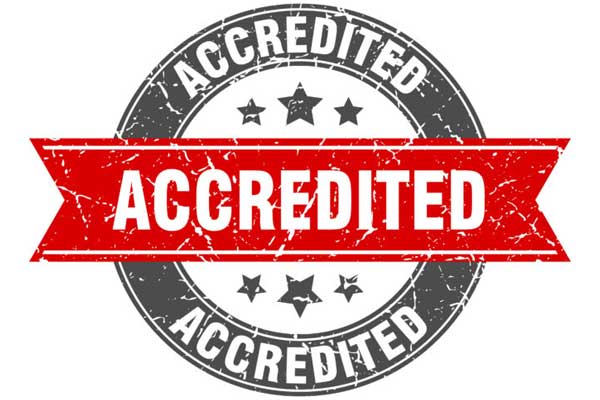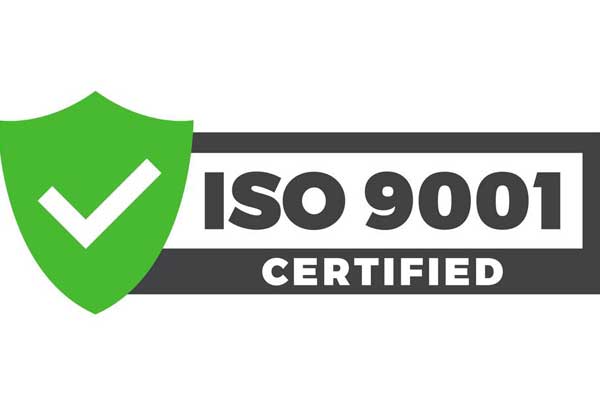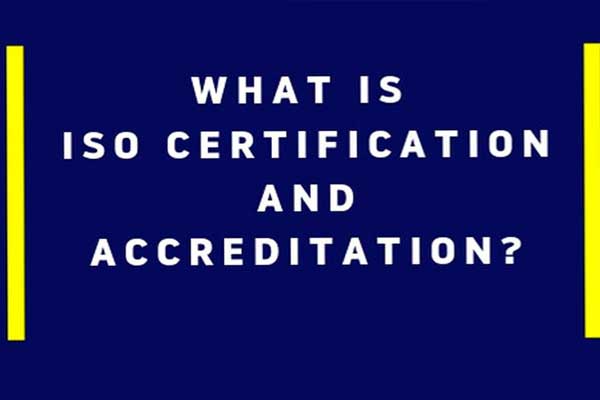International Organization for Standardization (ISO) publishes a wide variety of internationally appreciated standards that apply to all organisations across the globe. Some of the most popular standards include ISO 9001, the quality management standard; ISO 14001, the environmental performance management standard; and ISO 45001, the standard that deals with occupational health and safety. You may be confused about the differences between ISO certification and ISO accreditation. In this blog, we will discuss the differences between the two, telling you that these terms should not be used interchangeably.
What is ISO certification?
Essentially, ISO certification applies to specific persons, systems, processes or products. Think of ISO certification as a written insurance/warranty from an ISO-certified accredited body that a specific person, system, process or product meets the requirements of ISO. Through the conduction of various audits, checks and conformity tests, the certified accreditation body checks upon the compliance requirements of the system, process, product, or person, determining whether it adheres to the ISO requirements.
If the process, products, or relevant systems do not meet the specified requirements, the accredited certification body provides a customised report listing corrective actions that can help mitigate all compliance issues.
It is noteworthy to remember that this does not apply to the entire organisation. Instead, certification is only applicable specifically to processors, products and systems. This is one of the most significant distinctions between ISO certification and ISO accreditation. ISO certification applies to one specific aspect of a company’s operation, whereas ISO accreditation applies to the entire company. Generally, ISO certification implies that a third party has provided written insurance. If you plan to receive consultancy on getting ISO 9001 certification in Australia, you can refer to the ISO 9001 consultant website.

What is ISO accreditation?
ISO accreditation is a method to show that the entire organisation can perform quality checks and ISO testing and maintain specific international standards. In other words, accreditation is utilised to verify that a specific organisation has the appropriate quality management in place and can perform specific tests in accordance with its scope of accreditation. Additionally, an accredited ISO certification body in Australia needs to be registered under the regional registrar, namely JAS-ANZ. ISO accreditation is a formal recognition by an authoritative body about the competence of an organisation regarding the specified standards.
ISO accreditation versus ISO certification
Some people make the mistake of using these terms interchangeably when these terms often go hand-in-hand. ISO accreditation is granted to organisations that can conduct certain activities, whereas ISO certification covers a specific aspect of the company. ISO website clarifies the difference between the two states that accreditation is a formal recognition by an independent body, commonly known as an accreditation body, and that a certification body operates in accordance with international standards. Similarly, certification is a provision by an independent body in the form of a written assurance or certificate, implying that a specific product, service or system in question meets the specific requirements of ISO.
What are the benefits of ISO accreditation and certification?
An organisation that is striving to comply with the standard and gets certified can enjoy the following benefits:
· Achieving easy compliance with interested parties and clients.
· Becoming independently and globally recognised for its services, product and efforts.
· Boosting assurance and confidence to customers.
· Enhanced internal management and processes.
· Increased profits, efficiency and productivity.
· Guaranteed customer retention and acquisition.
On the other hand, accreditation benefits involve cementing a company’s reputation.

How long does ISO certification last?
Typically, an organisation enters a three-year validity cycle after getting an ISO certification. This means that the certificate remains valid for three years. However, to maintain the certificate’s validity, the organisation must conduct yearly surveillance audits. Moreover, sometimes the certificate can get suspended due to changes in business structure or failure to meet predetermined criteria.
Why should you get ISO certified?
If you are an entrepreneur or a business owner, ISO certification can aid your business by helping to improve its processes, allowing you to save money while you improve efficiency. It is also a great way to showcase your commitment to quality management and customer satisfaction. Once you get ISO certified, new customers will be attracted to your organisation, as they will be aware that they are dealing with someone who has been given a stamp of approval by one of the most respected international bodies. Existing clients will continue to do business with you as they will become confident about the quality of your products or services, which means better margins for everyone involved.
How do I get ISO certified?
If you want to get certified under ISO 9001, ISO 14001, ISO 45001, or any other standard, you must first submit your request for review at an accredited certification body’s website through its contact page. The lead auditor ISO 9001, will check your documents and processes for compliance before presenting you with a compliance report. Based on your performance in the audit, you will either be granted an ISO certificate or given a list of recommendations to correct your non-conformances.
Conclusion
ISO certification guarantees the efficiency and compliance of a specific product, process, procedure or system, whereas ISO accreditation guarantees a company’s compliance.








Users Comments
Get a
Quote